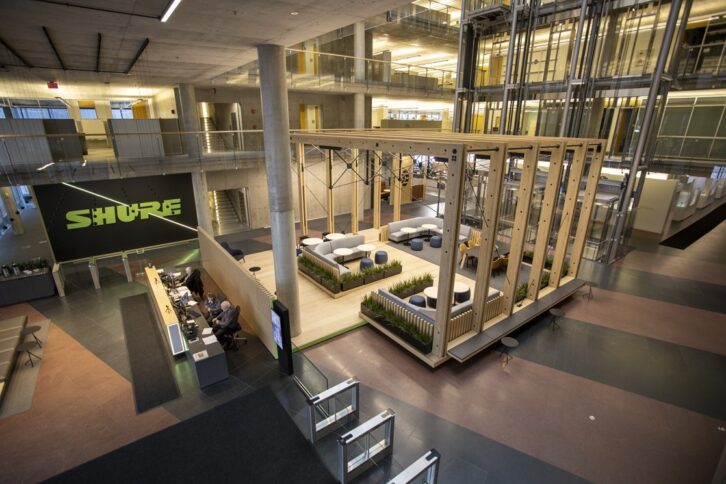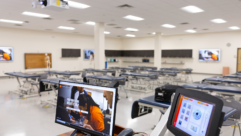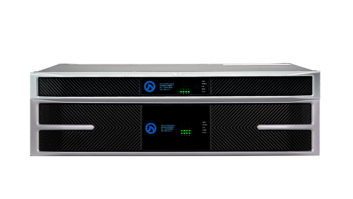
Shure’s focus on energy efficiency has resulted in worldwide changes for the company. Through energy efficiency improvements, Shure’s Eppingen, Germany, office has reduced its energy use from January to May 2023 by more than 25,000 kilowatt hours over the same period last year. That is enough energy saved to power seven homes in Germany for an entire year, according to a German energy association.
Shure has already implemented ways to reduce energy on lower-occupancy days at the headquarters, such as reducing available elevator cars and office lighting as more employees are working from home on Fridays.
The company’s offices in Asia are also implementing sustainability efforts, including battery recharging for Associates, renewable energy programs and recyclable carton exchanges with vendors. Facilities in Mexico utilize skylights for illumination, along with photocells, to reduce energy use.
Achieving these improvements is part of the company’s overall global initiatives to convert to automated lighting and more energy-efficient bubs; reduce or eliminate lighting during non-business hours; evaluate HVAC to be more efficient; and empower associates to be more mindful of overall energy use at the office.
Shure has also joined the Sustainable Packaging Coalition and implemented packaging upgrades that incorporate 75 percent recyclable and/or renewable materials in 2023. With more than 1500 different packaging pieces for a variety of different products, this is a significant undertaking. Some of the highlights include replacing thermoform trays with more sustainable, recyclable alternatives such as molded pulp; reducing overall plastic materials in packaging; reducing the amount of accompanying literature; and right-sizing packaging for greater efficiency and reduced CO2 footprint from shipping and storage.
On the rechargeable battery front, Shure has quantified that by 2027, more than 100 million AA batteries will have been saved from landfills from changes to the product lines. With previous technology, disposable batteries were used to power microphones and transmitter packs.
Audio engineers would frequently replace batteries – even when those batteries still had power – to ensure an uninterrupted performance with fresh batteries. Rechargeable options have significant impact. For example, on David’s Byrne’s “America Utopia” Broadway show, the monitor engineer estimated they saved about 21,000 AA batteries from being disposed of in landfills because they used Shure’s rechargeable system over the course of the run. In the past five years, Shure estimates that it has already eliminated more than 20 million AA batteries from ending up in landfills. The company has also engineered its products to help with overall power consumption, using less energy in “down” modes and allowing remote monitoring of power use with Wireless Workbench Software.
In its sphere of influence, Shure works with suppliers who take action on sustainability, including suppliers who use solar power and recycled water in their operations. The company is also working to approve water-based paints in the finishing process, which is friendlier for the environment. Shure supports a number of global and locally-based organizations dedicated to sustainability efforts and ecology, and associates around the world have volunteered for environmental efforts in their communities.
On the compliance front, a cross-functional Shure team regularly reviews international regulations, directives, and standards to ensure environmental compliance with regulations like RoHS, REACH, and WEEE.










